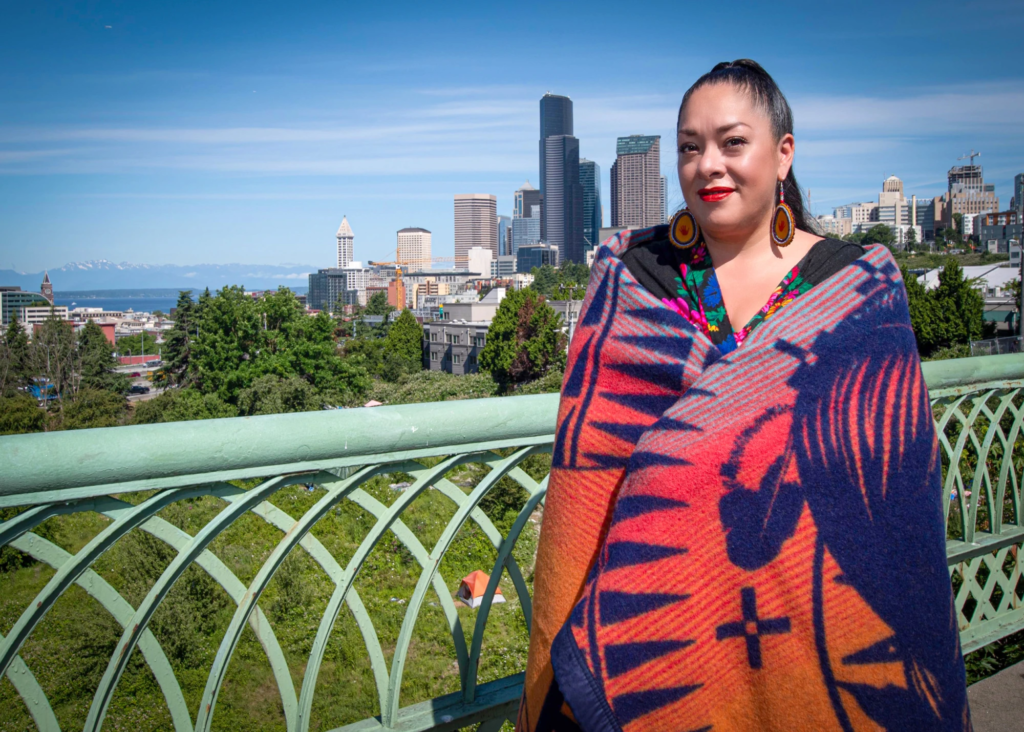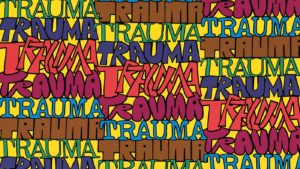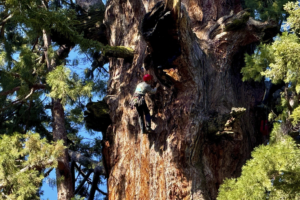Indigenous women are demanding a reshaping of the criminal justice system in a way that values their lives.
Abigail Echo-Hawk was part of a small team of researchers at the Seattle Indian Health Board that released a landmark study in 2018 on the number of missing and murdered Indigenous women. The report not only hinted at the hidden magnitude of the problem — documenting more than 500 cases, predominantly in the Western United States, stretching back to the 1940s — it also highlighted major shortcomings in the crime data used to understand the issue.
In the absence of comprehensive government information, Echo-Hawk and her colleagues combed media reports, reached out to the families of victims across Indian Country and called community leaders and organizers to compile their study.
“We need to understand the base issue of the problem,” said Echo-Hawk, the executive vice president the Seattle Indian Health Board and a citizen of the Pawnee Nation. “Where are we? What does the data look like? What do the leaders need?”
Three years later, there is still no definitive count of missing and murdered Indigenous women in the U.S., in part because of underreporting of crimes and police reports that misclassify Native American women as white or Hispanic. Police generally do not document victims’ tribal affiliation — often, police forms lack a field for this information — which means even tribal governments don’t understand the scope of the problem among their own citizens. But based on available research, more than 4 out of 5 American Indian and Alaska Native women experience violence in their lifetime, according to a 2016 National Institute of Justice study.
Without better data, this ongoing legacy of colonial violence, in which Indigenous women and children across North America were subjugated and exploited for hundreds of years, has been effectively hidden. Native people have been made invisible in the data policymakers use to address the public’s needs and allocate the necessary funding and attention, researchers and advocates say.

Echo-Hawk is one of many Indigenous women demanding a reshaping of the criminal justice system in a way that values their lives. She and others are pushing the issue to the forefront by pressuring public officials and policymakers to fund efforts to address the problem and by showing them, through testimonials and research, the cost of inaction.
“We refuse to let our people die in silence,” Echo-Hawk said.

In the last few years, nearly a dozen states have created task forces on the issue, and Echo-Hawk and other Indigenous researchers and advocates are pushing more states to do the same — and to fund the changes the panels recommend. In Minnesota, Lt. Gov. Peggy Flanagan, a Democrat who is White Earth Band of Ojibwe, has pushed for funding for justice reforms. The task force there led to the recent establishment of an office to investigate cold cases, using Covid-19 relief funding.
This month, Washington Attorney General Bob Ferguson, a Democrat, announced his state would create a task force as well. The 21-member group of representatives from tribal nations, community outreach organizations and the criminal justice system will look at best practices for data collection and crime reporting. The task force has $500,000 to spend over the next two years and hired a small staff.
“The incomplete nature of the data, if I’m putting it charitably, has been a challenge for us,” Ferguson said.
Addressing the patchwork of criminal jurisdictions in Indian Country — which requires prosecutors, and sometimes law enforcement, to determine whether tribes, the state or the federal government has authority in a case — is already difficult, he said. But it’s an even more daunting task when law enforcement doesn’t know how many cases exist.
One of Echo-Hawk’s strategies is a novel workaround: Since law enforcement generally does not collect data on tribal affiliation, this year she helped the King County Prosecuting Attorney’s Office, which covers Seattle, set up a system to gather this information from victims and their family members when a case is referred for prosecution. The office also created a system to share resources and information with tribes.
Aubony Burns, a senior deputy prosecuting attorney in King County, said she and her co-workers found the Seattle Indian Health Board’s report “startling,” and after an inventory of their cases, she said they realized “we had huge holes in just the basics of our data.”
For Burns, a citizen of the Choctaw Nation who works in the office’s sexually violent predator unit, it was an urgent call to action to collect better crime data, which determines the prosecutions that get resources and attention. “If we’re not keeping it right and addressing it in the correct way, then it’s really useless, right?” she said.
The program is new, but Burns said in the coming months she expects data on tribal affiliation to illuminate the needs of the Indigenous peoples in King County.
Since the 2018 study, both the Seattle Police Department and the Washington State Patrol have put funding toward cases involving missing or murdered Indigenous people, but neither has started gathering tribally specific data. The Seattle Police Department has worked with the Seattle Indian Health Board to analyze the data collection process and hired a data adviser on this issue, said Sgt. Randall Huserik. The Washington State Patrol has hired two tribal liaisons to review data for racial misclassifications, help families report crimes and investigate older cases, said Capt. Neil Weaver.
Echo-Hawk secured a grant from the Centers for Disease Control and Prevention to start the work being done in King County, which she hopes to see replicated outside of Washington. Next month she and her colleagues will share that work in a toolkit for other prosecutors interested in collecting and analyzing tribally specific victim data.
“It is true, community-led police reform,” Echo-Hawk said. “What we’ve done in the King County prosecutor’s office can be replicated in any county in the country, large or small.”
There’s also action at the federal level. Under the direction of Secretary of the Interior Deb Haaland, the first Native American to hold the position, the department is building a missing and murdered unit within the Bureau of Indian Affairs to support investigations and coordinate services with the families of victims.
For Annie Forsman-Adams, a researcher on Washington’s new task force and a member of the Suquamish Tribe, a key component is buy-in from police departments to not only collect more detailed data, but also to create new ways to gather it by building trust in the communities they patrol. For many police departments, that could mean training officers on the complexities of Indigenous identity.
“At the end of the day, that’s how we’re going to collect good data,” she said.




